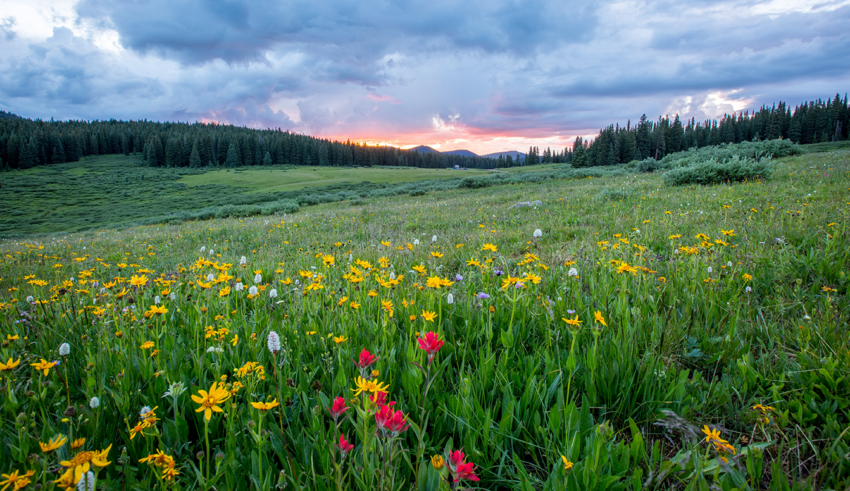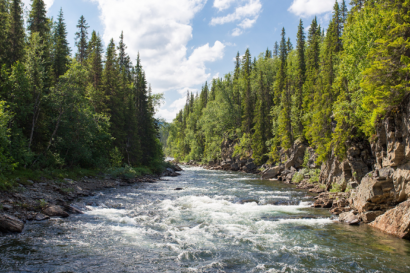AG INSIGHT | 30/09/2021
Easier said than done – one year on from the Leaders Pledge for Nature

One year on since the UK signed up to the globally ambitious Leaders Pledge for Nature (LPN), Georgina Chandler, Senior International Policy Officer, and Fiona Dobson, International Policy Officer, at the RSPB discuss how the organisation has found that words have failed to turn into tangible action. In fact, the RSPB’s analysis shows that for 9 of the 10 LPN commitments the UK Government has been “talking the talk” but not doing enough to “walk the walk” and take the action that nature needs to recover at home.
In September 2020 the UK launched the Leaders Pledge for Nature (LPN) where a coalition of political leaders from across the world committed to be “United to Reverse Biodiversity Loss by 2030 for Sustainable Development” by taking action in 10 key areas. To date, 91 world leaders have signed up, firmly signalling that they will step up action to truly bend the curve of biodiversity loss. The pledge is incredibly important, and the UK’s pivotal role as a champion of the process is very welcome and significant in the lead up to two vital upcoming summits for climate (COP26 in Glasgow) and nature (COP15 in Kunming, China).
On Wednesday last week, leaders from across the globe came together to celebrate this one-year anniversary, at an event in the side-lines of the UN General Assembly. Governments and the private sector demonstrated how they are committing to implementing the pledge, with some significant commitments, including the biggest-ever philanthropic commitment to nature conservation of $5 billion over the next decade with a specific focus on protected areas.
Despite the display of ambition at Wednesday’s event, and welcome commitments from many, we need the UK Government to also lead by example and show how they are taking action to deliver for nature at home. As previous failed commitments show, if words don’t turn into actions on the ground, this pledge will mean nothing. Prime Minister Johnson called on LPN signatories to now “match the bold words of the pledge with deeds that are equally ambitious”, and we’re yet to see him rise to his own challenge with domestic actions.
RSPB’s analysis shows the UK Government[1] is falling short in implementing 9 out of the 10 LPN commitments at home. Here, we look at 3 examples where urgent action is needed if we are going to successfully achieve the LPN. The table attached below includes a more detailed assessment and justification for our conclusions.
Financing for nature (LPN commitments 1, 7, and 9) In order to be able to drive success, global commitments need to be backed up by sufficient financing and costed plans. Yet financing for nature in the UK has declined significantly in recent years[2]. We estimate a need of £6.8bn per year in total, which includes getting on track to halt the decline of nature by 2030; contributing to meeting climate change mitigation targets; and providing equitable access to a healthy natural environment. This is an estimated £4.6bn greater than estimated current annual spend. To achieve priority habitat and species objectives alone, we estimate an annual scale of need of £1.8bn. The Comprehensive Spending Review (expected this November) provides the opportunity to level up investment in our neglected national asset, and truly kick start a green recovery for people and nature.
Protected Areas and Species Recovery (LPN commitments 1, 2, 3 and 6) We know that protected areas are core to delivering ambition for nature in the UK (and globally). Despite this, a recent paper by the RSPB found that as little as 5% of land is being effectively protected and managed for nature across the UK – far from the 28% claimed by the UK government and the 30% they have committed to globally. Restoring and expanding the UK’s protected wildlife sites is essential but the evidence shows that their condition is worsening, which is unsurprising given the significant declines in monitoring, resourcing, staffing and enforcement for these sites across all four countries of the UK over the past decade. To be included in the 30% target, areas must be protected in the long term and effectively managed for nature, meaning they are regularly monitored with appropriate investment, to ensure that they are in good condition or showing evidence of recovery. The onus is now on Governments across the UK to commit to and set out how they will achieve 30×30.
Sustainable production and consumption (LPN commitments 2 and 4) Agriculture remains the most significant driver of biodiversity loss, yet, with the right policies, regulations and incentives in place, farming can play a key role in reversing these declines and tackling environmental challenges. In England, the Agriculture Act (2020) provides a strong foundation to help achieve this. However, the tests of success will hinge on both the funding for the new Environmental Land Management (ELM) schemes matching the scale of environmental need, and ensuring that each scheme is sufficiently ambitious. We have significant concerns that ambition is not yet where it needs to be – for example there are no clear environmental objectives. We need to see ELM making a significant contribution to halting the loss of species abundance by 2030 by encouraging farmers to manage areas of their farm for nature. In the marine realm, concerningly there is no suitable equivalent scheme to drive sustainable fishing practices. The UK Governments must address this, including through action to eliminate accidental bycatch of species, and make good on the commitment made in the Fisheries Act (2020) to adopt a ‘climate-smart’ strategy for UK fisheries.
Looking forward
The UK Government has a key role as hosts UNFCC COP26 – and as part of the CBD COP15 negotiations in spring next year – to continue to raise international political momentum and ambition for nature. We welcome the report released last week by the UK’s statutory nature agencies which provides positive high-level recommendations for how to deliver on the promise of becoming nature-positive by 2030. Yet, this one-year-on stocktake of UK Government progress towards the Leaders Pledge for Nature reveals that so far, global rhetoric is not translating into domestic action. We know that words alone will not revive our world or tackle the twin crises facing nature and climate. Nature cannot keep waiting for us to act, let’s make sure it doesn’t have to.


